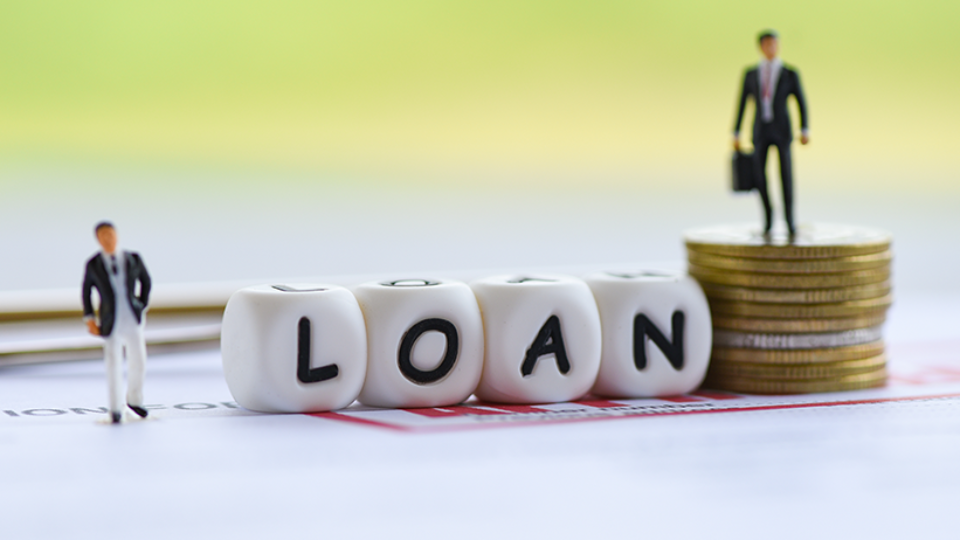Everyone has great aspirations to which they work towards; switching jobs for higher paychecks, working second jobs, investing in stocks - these are all ways in which people try to earn some extra money to better their lives. As you continue to reach greater heights, you tend to upgrade your lifestyle as well, which is perfectly natural. However, sometimes lifestyle upgrades happen at a faster rate than your income, leading to a difficult situation where you find yourself living above your financial means. While this is a very easy situation to fall into, it’s not so easy to crawl back out of as hardly anyone is taught personal finance before the fact. Therefore, it’s very important to make sure you don’t fall into this trap when you are making your way up the ladder of wealth.
Here are some signs to help you identify that you are living above your financial means:
Living Paycheck to Paycheck
Living paycheck to paycheck is a clear sign of personal finance mismanagement no matter what your level of income is (providing you are above poverty level). There is no reason for anyone to be living paycheck to paycheck if you are earning a liveable wage. While you might have a certain vision of how your life should be, if your current income does not allow for that, you should accept that at this moment in time, it is just an aspiration and reduce your expenses to a level befitting of your income.
Read our other blog article for more information about how to stop living paycheck to paycheck.
Dependence on Credit
If your lifestyle is mostly or partially funded through credit, it’s a clear sign that you are living above your financial means. Most banks are more than willing to offer credit cards with large limits which prove to be too tempting for customers to stay away from. Buying the latest mobile phone which costs more than two hundred thousand rupees while earning a sixty thousand rupee salary is made possible by credit cards and interest-free instalment schemes. Does that mean you can afford it? No, it means you are living above your means.
Read our other blog article for more information about reducing the usage of your credit card.
Less Regular Savings
If you are earning more than you used to earn but your savings remain the same or you find yourself not saving as much or as regularly as you used to, that means your lifestyle has upgraded more than your income did. With every bump up in your income, you should ensure that a portion of that is allocated towards your savings fund.
No Emergency Fund
Living life with no emergency fund is one of the riskiest things you can do nowadays. One financial emergency could potentially dig a deep hole into your savings or retirement fund. If you’re earning a sizable income and yet you are more concerned about buying things than building your emergency fund, it’s a sign that you might not just be living beyond your financial means, but have poorly prioritised your personal finances.
High Rent
One of the things people tend to splurge on when they start making big money is on their living spaces, especially when living on rent. People tend to move upwards, from small annexes and houses to luxury apartments at the heart of Colombo. However, if your rent is costing you more than 30% of your monthly household income, that’s a bad sign that your living space currently outweighs your financial means. Especially when living on rent after which you won’t have anything to show for it, unlike investing that money in buying or building your own house.
Bills Out of Control
Even though you own a fancy house, supercar, latest electronic items and wear expensive designer clothes, if you are struggling to pay all your bills in full and on time, you are clearly living beyond your financial means. Your finances should be accordingly allocated to ensure that they cover your essential expenses first, savings/emergency fund next and then allowing yourself luxuries with the spending money that you have left. Prioritising luxuries over your bills is one of the first steps towards financial ruin.
Read our blog article about how to budget when you have fallen behind on your bill payments.
.jpg)
Perpetual Debt
If you are struggling with getting out of debt despite earning a substantial income, it might be time to look at how you manage your finances. Living a high-flying lifestyle while you are in debt is not a good combination. It just takes one bad month or an emergency to plunge you into a debt hole you might find difficult to climb back out of. If you are able to concentrate on settling your debts for a few months, you can relax into your new lifestyle without worrying about the weight of the debt on your shoulders.
.jpg)
Social Status
One of the biggest mistakes people who are rising up in their respective social circles make is “keeping up with the Joneses”. This famous saying captures the pressure people feel to copy the trends and lifestyle choices made by their friends and associates, even though they might not necessarily want or need similar things or even may not be able to afford it. Many people fall into debt and face financial ruin just because they are extremely concerned about keeping up social appearances e.g. sending children to expensive schools, upgrading their cars and mobile phones etc. This is a mistake you must take care to avoid.
Living beyond one’s financial means is a very common pitfall that many young people find themselves in. While it might be difficult to pull yourself out of these habits, it’s not impossible and one you should strive towards.







